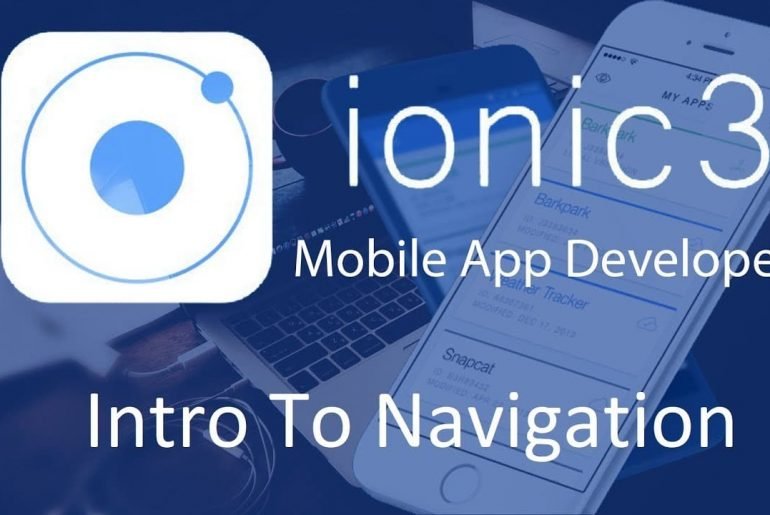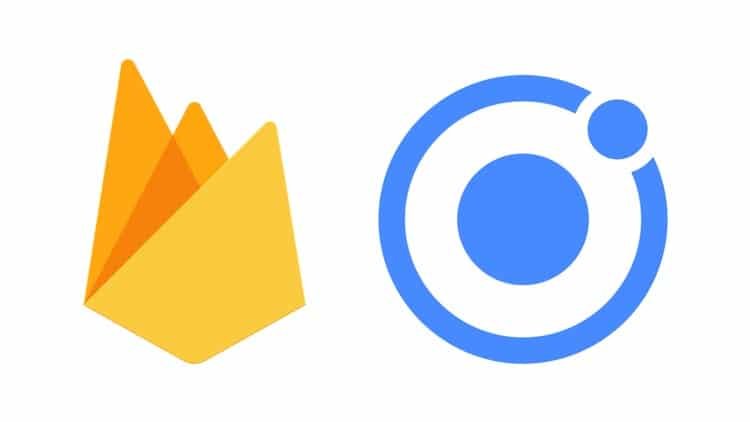Ionic Mobile App
The Ionic framework allows for the creation of highly interactive, cross-platform mobile apps that can be deployed across different smartphone and web. Those powerful capabilities are brought to Ionic because it provides

Ionic is a free and open source project. Ionic is an HTML5 SDK that helps you build native mobile apps using Web technologies like HTML, CSS and Javascript. Ionic is a front-end HTML framework built on top of AngularJS and Apache Cordova.
Ionic provides the ability for developer to develop the frontend User Interface that creates the general representation, interactions, animations, look and feel and beauty of application. Ionic provides users with all the components tools and functionalities that are used in native mobile development software development kits(SDKs). Developers can design their applications using tools and sample codes provided by the ionic framework documentation. Ionic app development framework have 4 main components: –
- Angular: – It is based on front-end Javascript framework which is rapidly used to create fast, interactive and
native like applications. - SAAS UI framework: – This is specially designed and optimized for mobile operating systems that also provides lots of UI components for creating robust mobile applications.
- Compiler: – It works as a compiler for native mobile applications
along with JavaScript, HTMLand CSS. - Elements: – It offers a wide range of custom elements and methods to develop interactive mobile apps by using AngularJS.
Ionic framework provides an entire native mobile app like functionality found in native mobile app development SDKs.
Features of Ionic Mobile App
- Based on SAAS and UI components for creating robust and rich apps. Ionic comes transported with a powerful CLI, providing mobile app developers the ability to start, build, run and emulate Ionic applications.
- Ionic is using AngularJS MVC architecture for building rich single page applications optimized for mobile devices.
- It provides all the functionality found in native mobile development SDKs, so users can create their apps and customize them for OS or Android and deploy through Cordova.
- Ionic is released under MIT license.
- With the native look and feel, CSS components offer almost all elements that a mobile application needs.
- JavaScript components are extending CSS componets with Javascript functionalities to cover all mobile elements that cannot be done only with HTML and CSS.
Ionic Framework Advantages
- Open Source and Easy to learn: – Ionic is completely free and is considered as one of the best open source for developing hybrid apps. If you are familiar with HTML, CSS and JavaScript you can learn Ionic very fast.
- Easy Documentation: – Ionic has very good and well documentation.
- Rapid development: – By running some command line, you can create pages, providers, etc. When you run a command it generates all files with template codes.
- Ionic is used for Hybrid App Development: – Ionic apps run on different platforms. As a result you don’t have to write codes for each platform. It reduces development time a lot. Develop an app once and deploy across iOS, Android and Window devices. Framework focus on HTML, CSS and JS, enable quick development, low costs and minimal maintenance.
- Platform Independent Framework: – It has the ability to acknowledge the platform specific optimized CSS equivalent to the native look and feel on various mobile operating systems. It reduced the need for code rewriting as it provides the code of mobile optimized HTML, JS and CSS components. Apart from this ionic integrates into AngularJS which becomes a robust structure making code excellent as well as more manageable.
- Default user Interface: – It has many default CSS and JS components that cover most of the essential things which you want to create into a mobile Applications. Apart from regular ones like buttons and navigation it also includes inputs, lists, cards, sliding boxes and many more. These can be easily customized by adding CSS classes to the elements.
Ionic Framework Disadvantages
- Performance: – Native mobile applications performance is better than ionic apps.
- Limited native functionality: – There may be native functions that may be not available in ionic framework. In such cases to fulfill that you have to develop the plugin yourself. However there are many plugins available to cover native functionalities.
- Feasible Cross Mobile App Development: – Developing an application at once is very essential as it would be compatible with all the mobile devices. However it needs extremely limited use of time, assets and efforts and helps in giving a unified look and feel.
- Built on AngularJS: – If you’ve worked upon Ionic, then you would likely realize that it is developed on top of the AngularJS framework. Furthermore, Ionic framework shares compatibility with AngularJS, thus the benefits of AngularJS development can be put to use too. Ionic framework is excellent for quick application ideas prototyping. Development cost is less compared to native iOS and Android Application.
Why Ionic Framework for Mobile app development
Ionic is free of charge and it is very easy to use if developers are familiar with HTML, CSS and JavaScript. Ionic is built on top of the AngularJS framework. Ionic has a default UI that is easy to customize. Ionic comes with default JavaScript components and CSS components that cover most of the basic things. This includes components like the sliding menu, form Inputs, Buttons, lists, Navigation, Popups and Prompts, Tabs, Sliding boxes, etc.
Ionic framework is a library of UI Components, which are reusable elements that serve as the building blocks for an application. In Ionic Apps developers can reuse the code to build apps for different platforms. As the rewriting of code is not required, it saves a lot of time and effort.
Mobile app testing is far easier with ionic. One can test it on a desktop browser or even perform simulator testing for both iOS and Android apps using Cordova commands.




